Back to School Health: How Your Marietta Dentist Can Be the First Line of Defense Against Sleep Disorders

As September arrives and families throughout Marietta settle into new school routines, parents are focused on ensuring their children have everything they need for academic success. From school supplies to sports physicals, back-to-school preparations cover many health and wellness basics. However, one crucial aspect of student health often goes overlooked: the connection between oral health and sleep quality.
Recent groundbreaking research reveals that dental professionals are uniquely positioned to identify sleep disorders like obstructive sleep apnea before they significantly impact a student’s academic performance, behavior, and overall health. For families in the Atlanta area, understanding this connection could be the key to unlocking better sleep, improved focus, and enhanced learning for students of all ages.
The Hidden Sleep Crisis in Students
Sleep disorders among school-age children and teenagers are far more common than most parents realize, yet they often remain undiagnosed for years. Studies indicate that obstructive sleep apnea affects millions of Americans, with symptoms frequently beginning in childhood but not being identified until adulthood.
The back-to-school season represents a critical time when sleep quality becomes paramount for academic success. Students who struggle with undiagnosed sleep disorders often experience difficulties with concentration, memory, behavior regulation, and academic performance that parents and teachers may attribute to other causes.
- Academic Impact Indicators: Poor sleep quality can manifest as difficulty paying attention in class, problems with memory retention, increased irritability, and declining grades despite adequate study time.
- Behavioral Changes: Students with sleep disorders may exhibit hyperactivity, mood swings, or behavioral issues that seem unrelated to sleep but are actually symptoms of poor sleep quality.
- Physical Symptoms: Morning headaches, difficulty waking up, and excessive daytime sleepiness are often the first noticeable signs that parents observe.
Why Dentists See the Signs First
Dental professionals often have the first opportunity to identify signs of sleep-disordered breathing because many symptoms appear in the oral cavity. During routine dental examinations, trained practitioners can observe physical indicators that suggest sleep quality issues long before patients or families recognize the connection.
The positioning of dental chairs allows for optimal visualization of the throat, tongue, and airway structures. This unique vantage point enables dentists to assess airway anatomy and identify potential obstruction sites that could contribute to sleep-disordered breathing.
- Anatomical Observations: Enlarged tonsils, narrow airways, tongue positioning, and jaw development patterns all provide valuable information about potential sleep disorder risks.
- Oral Health Indicators: Teeth grinding, tongue scalloping, dry mouth symptoms, and unusual wear patterns often indicate sleep-related breathing problems.
- Growth and Development Assessment: Pediatric patients benefit especially from early identification, as addressing sleep disorders during developmental years can prevent more serious complications later.
Recognizing the Warning Signs
Understanding the oral and physical signs that suggest sleep disorders empowers parents to seek appropriate evaluation and treatment. Many indicators are visible during routine dental examinations, but parents can also watch for specific symptoms at home.
Teeth grinding, also known as bruxism, represents one of the most common and easily identifiable signs of sleep-disordered breathing. Contrary to long-held beliefs that attributed grinding to stress or dental misalignment, recent research suggests it often indicates underlying sleep issues.
- Nighttime Symptoms: Loud snoring, gasping or choking sounds during sleep, restless sleeping, and frequent position changes can all indicate breathing difficulties.
- Daytime Behaviors: Difficulty concentrating, hyperactivity, mood changes, and problems with academic performance may all connect to poor sleep quality.
- Physical Indicators: Morning headaches, jaw pain, tooth sensitivity from grinding, and excessive daytime fatigue suggest sleep quality issues that warrant professional evaluation.
The Dental Sleep Medicine Approach
Dental sleep medicine represents a specialized field that focuses on using oral appliances and other dental interventions to treat sleep-related breathing disorders. This approach offers effective alternatives for patients who struggle with traditional CPAP therapy or who prefer non-invasive treatment options.
The field has experienced significant growth as awareness increases about the connection between oral health and sleep quality. Dental sleep medicine specialists receive advanced training in sleep disorder identification, oral appliance therapy, and collaborative care with sleep physicians.
- Comprehensive Evaluation: Qualified dental sleep medicine providers conduct thorough assessments that include airway evaluation, medical history review, and coordination with sleep specialists when necessary.
- Treatment Options: Custom oral appliances designed to maintain open airways during sleep offer comfortable, effective treatment for many patients with sleep-disordered breathing.
- Ongoing Management: Regular follow-up care ensures optimal appliance function and monitors treatment effectiveness over time.
Early Intervention Benefits
Addressing sleep disorders early in life provides profound benefits for overall health, academic performance, and quality of life. Students who receive appropriate treatment for sleep issues often experience dramatic improvements in multiple areas of functioning.
Academic performance frequently improves when sleep quality issues are resolved. Students report better concentration, improved memory, and enhanced ability to focus during class and while studying. These improvements often translate to better grades and increased academic confidence.
- Cognitive Enhancement: Better sleep quality supports improved attention span, memory consolidation, and problem-solving abilities essential for academic success.
- Behavioral Improvements: Addressing sleep disorders often reduces hyperactivity, impulsivity, and mood regulation problems that can interfere with learning and social relationships.
- Long-term Health Benefits: Early intervention prevents the progression of sleep disorders and reduces the risk of related health complications including cardiovascular problems, diabetes, and cognitive impairment.
The Collaborative Care Model
Effective sleep disorder management requires collaboration between dental professionals, sleep physicians, and other healthcare providers. This team approach ensures comprehensive evaluation and optimal treatment outcomes for patients of all ages.
Dental sleep medicine specialists work closely with sleep physicians to coordinate care and ensure patients receive appropriate diagnostic testing when needed. This collaborative model provides the most effective treatment approaches while maintaining the highest standards of care.
- Integrated Assessment: Multiple healthcare providers contribute their expertise to create comprehensive treatment plans tailored to individual patient needs.
- Coordinated Treatment: Communication between providers ensures that all aspects of care work together effectively and that treatment modifications are made when necessary.
- Family Education: Parents receive comprehensive education about sleep disorders, treatment options, and strategies for supporting their children’s sleep health.
Innovative Treatment Technologies
Modern dental sleep medicine incorporates advanced technologies that make treatment more comfortable, effective, and convenient for patients. Custom oral appliances designed using digital impressions and computer-aided manufacturing provide precise fit and optimal effectiveness.
Recent advances in oral appliance design have improved comfort, durability, and treatment effectiveness. These improvements make oral appliance therapy an attractive option for patients seeking alternatives to traditional CPAP treatment.
- Digital Precision: Computer-aided design and manufacturing create oral appliances with unprecedented precision and comfort.
- Advanced Materials: Modern appliance materials offer improved durability, comfort, and hygiene compared to earlier designs.
- Customization Options: Individual patient anatomy and preferences guide appliance design to optimize both comfort and effectiveness.
Creating Healthy Sleep Habits
Beyond professional treatment, families can implement strategies that support healthy sleep patterns and optimal academic performance. Establishing consistent sleep routines, creating optimal sleep environments, and understanding the importance of sleep hygiene benefit all family members.
The back-to-school season provides an excellent opportunity to establish healthy sleep habits that support academic success. Consistent bedtime routines, appropriate sleep duration, and screen time management all contribute to better sleep quality.
- Sleep Environment Optimization: Creating quiet, dark, comfortable sleeping spaces supports natural sleep patterns and reduces sleep disruption.
- Routine Establishment: Consistent bedtime and wake times help regulate natural circadian rhythms and improve overall sleep quality.
- Lifestyle Factors: Regular exercise, appropriate nutrition, and limited screen time before bed all contribute to better sleep quality and overall health.
When to Seek Professional Evaluation
Parents should consider professional evaluation when they observe persistent signs that suggest sleep quality issues. Early consultation allows for timely intervention that can prevent academic, behavioral, and health complications.
Routine dental visits provide excellent opportunities for sleep disorder screening, but parents shouldn’t wait for scheduled appointments if they observe concerning symptoms. Professional evaluation can determine whether symptoms indicate sleep disorders or other treatable conditions.
- Persistent Symptoms: Ongoing sleep difficulties, behavioral changes, or academic problems that don’t respond to typical interventions warrant professional assessment.
- Risk Factors: Family history of sleep disorders, anatomical features that suggest airway obstruction, or medical conditions that increase sleep disorder risk indicate the need for evaluation.
- Academic Concerns: Declining grades, attention problems, or behavioral issues that seem related to fatigue or sleep difficulties should prompt professional consultation.
Expert Sleep Medicine Care in Marietta
Dr. Wayne Suway brings unparalleled expertise in dental sleep medicine to families throughout the Atlanta area. As a Diplomate of the American Board of Dental Sleep Medicine, Dr. Suway represents the gold standard in sleep disorder identification and treatment. His extensive training and over 30 years of experience provide the foundation for exceptional care in this specialized field.
The combination of Dr. Suway’s advanced credentials and commitment to staying current with the latest developments in sleep medicine ensures that patients receive the most effective treatment options available. His recent attendance at the American Academy of Dental Sleep Medicine Annual Meeting demonstrates his dedication to incorporating cutting-edge approaches into patient care.
At the Atlanta Sleep Apnea Treatment Center, Dr. Suway offers comprehensive evaluation services that can identify sleep disorders early and provide effective treatment solutions. His expertise in both pediatric and adult sleep medicine makes him uniquely qualified to address sleep health concerns for entire families.
This back-to-school season, consider the profound impact that sleep quality has on academic success and overall health. If you’ve observed signs that suggest sleep difficulties in yourself or your family members, contact Dr. Wayne Suway’s office in Marietta today at (770) 953-1752 to schedule a consultation and discover how expert sleep medicine care can transform your family’s health and academic performance.
Posted on behalf of
1820 The Exchange SE, #600
Atlanta, GA 30339
Phone: (770) 953-1752
FAX: (770) 953-6470
Mon - Thu: 8:30 AM – 5:30 PMClosed for lunch: 12:30 PM - 1:30 PM


